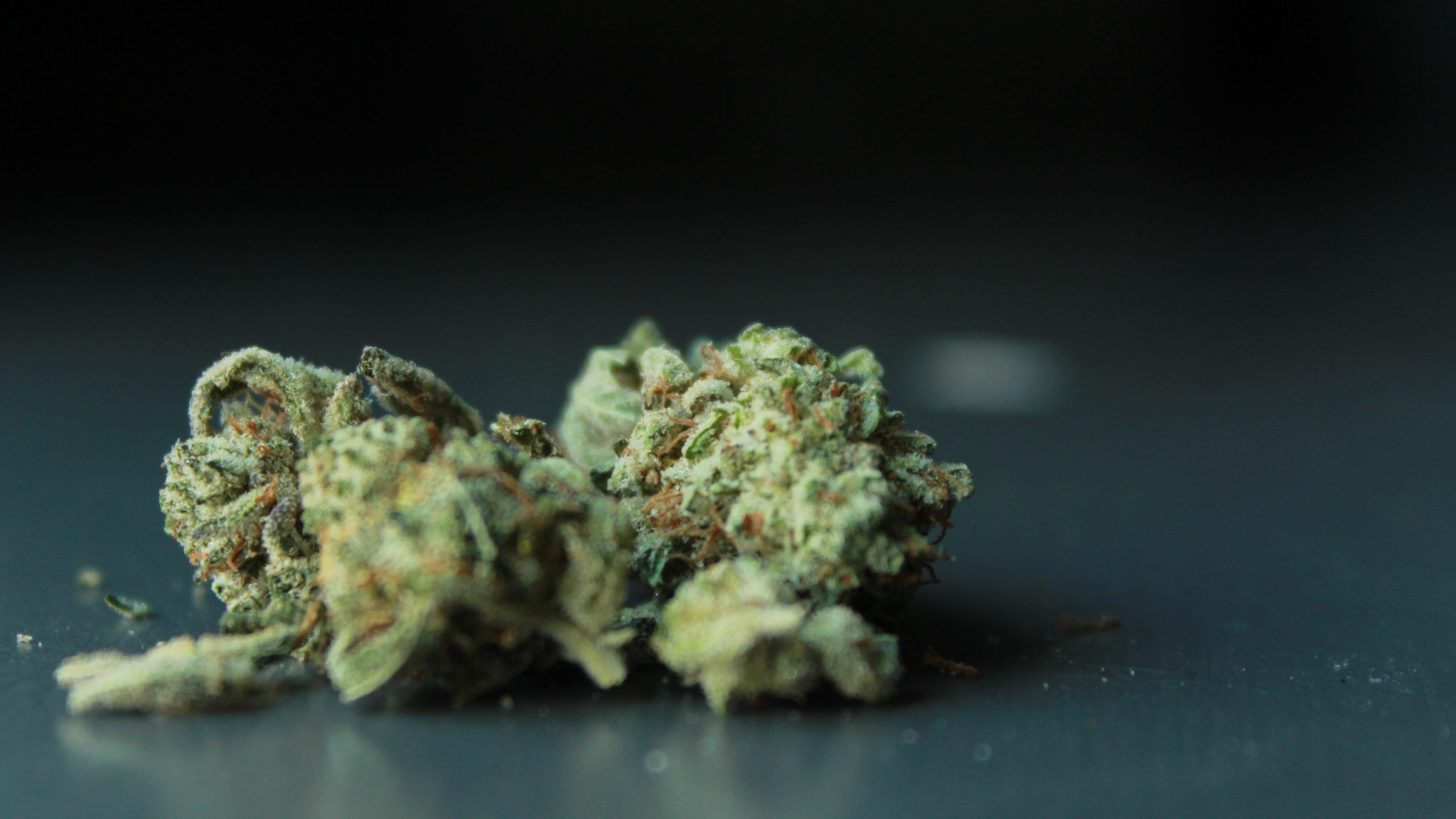Coronavirus affects your ability to breathe, so does puffing that “spliff” every night, yet more and more are endangering their lives further by taking comfort in cannabis during this period of uncertainty, WHY?
The ‘lockdown’ certainly doesn’t feel like a total societal shutdown with people still jogging around in a park, cyclists buzzing through the otherwise painfully silent streets; it never seemed to hinder one’s ability to go out for a walk, alone.
Each time you go for such a walk, many of these “buzzing cyclists” may not be delivering food or out and about for a quick ride, but browsing on their phone, sometimes impatiently waiting on the roadside for an inconspicuous handshake culminating in the exchange of a small sachet – a little cannabis.
Danny is in his late 20’s; he has a beautiful wife, looks pretty decent and doesn’t fit a stereotypical drug dealer; but yes, he is one among the many small-time cannabis dealers in Cardiff who have experienced a sudden rise in demand for the ‘miracle plant’ during this pandemic.
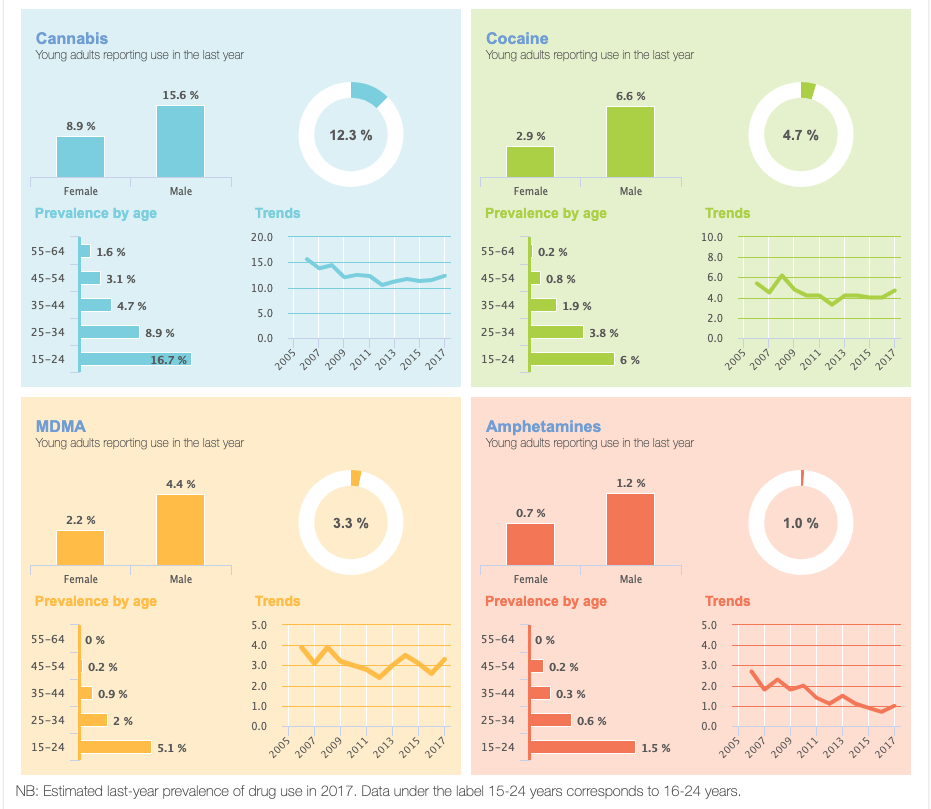
“Getting high” during the pandemic
“I smoke because it makes me feel different and happy… If this pandemic continues, people will smoke more often,” says Yash, 22, a student at Cardiff Metropolitan University and a routine recreational smoker.
This community of ‘stoners’ (a common term for weed users) across the world are dealing with the extreme boredom and angst of the pandemic by rolling a “spliff” and stretching their legs.
Reuters reported that in key American markets including California, Oregon, Colorado, and Alaska, recreational cannabis sales rose by more than 50% during a one-week period in March while it continues to be the most preferred drug on the illegal market in the UK and is surely continuing to be so during the COVID crisis.
I smoke because it makes me feel different and happy…
Yash, 22, Student
There is anecdotal evidence that portrays cannabis as a solution for a variety of mental health concerns that people may be facing in the current environment, but science isn’t based on age-old stories of euphoria and relaxation and understandably so.
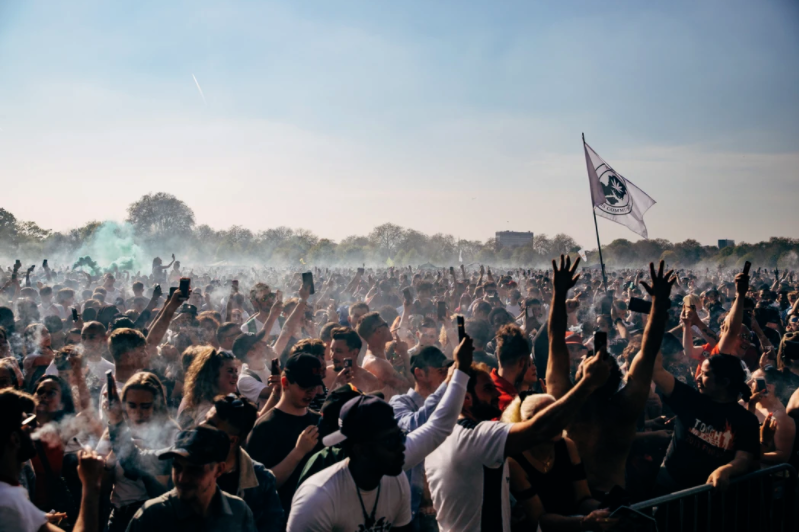
The statistics indicate that the lockdown did not stop cannabis enthusiasts from celebrating this once in a century event. Credits: VICE
Bernie Guiliano is 26, and a post-graduate student at Cardiff University, and he could be a poster child for the legalisation of recreational cannabis.
He does not smoke every day. He does not wait by his door for his dealer like an eager and excited child waiting for Christmas morning nor does he have a vaporizer or ‘pot plant’ growing in his home.
But he says, “After getting high one Sunday, I made a den in the living room, watched Lord of the Rings and told my girlfriend I’m so comfy that I feel close to enlightenment, my whole body feels like cafetière coffee.’ She laughed for a solid 45 minutes.”
This is what “getting high” is to most people. Sounds delightful but, not many good things in life come without a price.
Anxiety or no anxiety – which is it?
There is no denying that there are certain adverse health effects due to smoking weed and in addition to that, it is illegal in most countries of the world; yet at the same time, there is no questioning the other medicinal capabilities of the plant which has been proven through scientific research and results.
I’ve personally never experienced any form of anxiety whilst smoking cannabis, but I know people who do. The thing is that what works for some people may not for everyone else, and just because something is bad news for one, doesn’t make it universally bad.
Bernie, 26, Student
But, like other medicines, it has supplementary characteristics too, and quite often, medical users like cancer patients have a mixed reaction to the THC (Tetrahydrocannabinol) – the psychoactive constituent of cannabis, you know, the thing that makes you high.
This is the component that conservative science demonises as studies have shown that THC increases the risk of psychosis and depression in its user, but it doesn’t tell you that the scale of most of these studies is so minute that drawing broad conclusions from these studies can be perceived as irresponsible.
“I’ve personally never experienced any form of anxiety whilst smoking cannabis, but I know people who do. The thing is that what works for some people may not for everyone else, and just because something is bad news for one, doesn’t make it universally bad,” says Bernie.
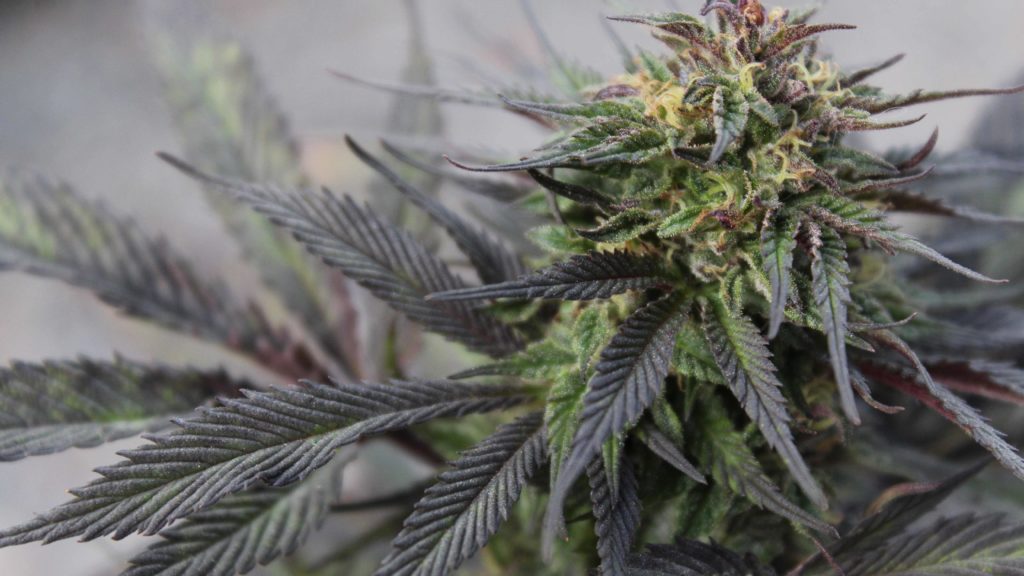
Scientifically, there is no concrete proof that cannabis improves mental health, but what we know is: shut people in their own homes, alone and bored, they might develop a tendency to smoke a little weed and relax.
Bernie explains, “It’s mainly a social thing, that I’ve picked up in quarantine largely out of boredom. I don’t know if it had any bearing on my social status but I’m conscious it can limit your social gatherings because you need like-minded friends.”
Arfon Jones, Police and Crime Commissioner for North Wales Police says, ” The price of drugs has gone up; there is no specific intelligence around cannabis but I don’t think there’s any shortage.” He attributes the increase in arrests of drug possession to the COVID regulations that are in place and the nature of the pandemic itself.
Why decriminalise and regulate?
The reality is that there is a large population in almost every country in the modern world that uses recreational cannabis. Former colonies like Canada and New Zealand have taken revolutionary steps towards decriminalisation while the United Kingdom lags behind in the formulation of these policies.
Sanjay Mehra, 25, is a Masters student at Cardiff Metropolitan University finds smoking weed helps him destress after the everyday routine he usually lives in. He says, “I believe people should dig deeper into their research of cannabis and not form an opinion without knowing all the details and information.”
I think I used to consider myself a hippie. Now I believe I’m just a person who smokes pot.
Najeena, 25, Product Specialist
“I think we’d see massive change if cannabis was to be legalised. There would definitely be a sense of unity and love amongst people,” says Najeena Vahab, 25, is someone society would probably stereotype as a ‘hippie,’ but she works at Educational technology and tutoring firm like many other ‘normal’ people.
“I think I used to consider myself a hippie. Now I believe I’m just a person who smokes pot.” She swiftly confirms my suspicions though and says, “I would go the extra mile once in a while and buy expensive weed. Depending on the financial situation I suppose.”
Cannabis in its smoking form is illegal in India as well, and that’s a whole another feature but, like the UK, there is a large population of youngsters who have become accustomed to the lifestyle that cannabis encourages, a largely peaceful and happy one.
“Politicians should be there to do the right thing and not just do what is popular.”
Arfon Jones, Police and Crime Commissioner (North Wales Police
Arfon Jones has been one of the few government officials in the country who actually understands the simple logic behind the imperfect decriminalisation that most countries have achieved.
He presents the argument perfectly, “Regulation of drugs is the only way to get it away from organised crime and organised crime is responsible for so much misery and it’s not only in this country.”
“There’s hundreds of thousands of people being killed in Honduras and Mexico over the last ten years and it is all down to the illegal supply of drugs. So, the sooner we regulate it, the sooner we take a big chunk of violence away and improve the quality of life of thousands of people around the world.”
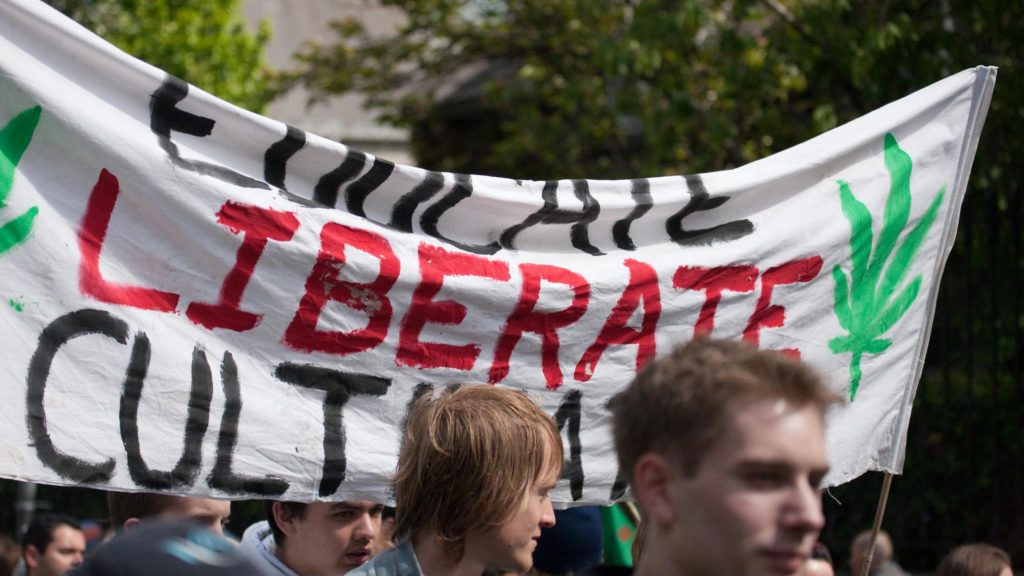
What’s next for the UK?
Mr.Jones is not fighting for the legalisation and regulation of just cannabis – but for the regulation of all illegal drugs. Arfon is quite candid and he goes on a short rant about the drug regulation laws in Uruguay, while not being so impressed by the decisions taken by Canadian and American policymakers.
Before we take the jump [into legalisation] we need to make sure that the supply is there and the price is right, and that’s what they’ve got in the Uruguay.
Arfon Jones, Police and Crime Commissioner (North Wales Police)
“I’ve been to Montevideo… and the thing is, its already reducing the black market by 25%,” says Mr. Jones. “Uruguay is a good system because the government controls the license, so the price is controlled unlike, you know, some of the states in America where it’s all commercialised.”
He is not so impressed by Canada’s policies, and questions the large-scale commercialisation of the cannabis industry which was previously what economists define as a small scale industry.
“I think the issue in Canada and in places like Illinois is that demand exceeds the supply, so people are still having to revert to the black market,” says Mr.Jones. “If the price of the legal stuff is higher than the illegal stuff, people are still going to continue buying this from the black market.”
He understands that it is a process like any other, and is susceptible to outside intervention when there is a lack in the policymaking. “I can’t say that I’m a big fan of the Canadian one [the regulation system]; I think it’s been hijacked by commercial organisations who wanted to make a profit.”
Obviously, legalisation of drugs is a niche issue although there are millions of people who actually use them; it is not seen as a vote winner.
Arfon Jones, Police and Crime Commissioner (North Wales Police)
“Before we make the jump [into legalisation] we need to make sure that the supply is there and the price is right, and that’s what they’ve got in Uruguay.” Yet, he still seems unsure about when the UK can make this jump, and believes that stances taken by public officials like Priti Patel are simply repressive of the public opinion.
“Obviously, legalisation of drugs is a niche issue although there are millions of people who actually use them; it is not seen as a vote winner,” but that’s what politicians are looking for.
“Politicians should be there to do the right thing and not just do what is popular,” remarks Arfon, with a real conviction in his voice. He does believe that change is on the way and seems practical with his expectations.
Danny is not a man of many words. He just says “No” to the thought of selling in a world where weed is legal and stripped of its stigma. Most small-time peddlers are like Danny.
We know men have always had their vices, and if we were to list all the vices in human history in terms of danger to the society, marijuana as the American’s coined it, wouldn’t be as high on the list as cigarettes, or alcohol, or for that matter a number of prescription medicines; yet they are all legal.
Nevertheless, The pandemic has revealed the cannabis industry to be recession-proof, and that recreational smoking is not merely about having a ‘jolly good’ time;’ but a complex affair with intangible mental health support characteristics.
Note: All user names have been changed for privacy reasons except Najeena Vahab.
